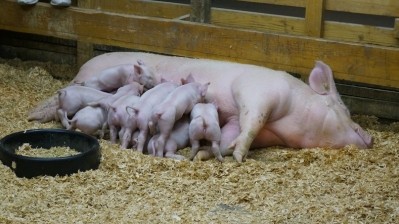DSM feed additive opinion: EFSA queries benefits of urine pH reduction in sows

In an opinion earlier this month on DSM’s product, VevoVitall, the European Food Safety Authority (EFSA) found, at a dose of 5 000 mg/kg, it has the potential to introduce a small reduction in urine pH in sows. In the absence of data, the Authority said no conclusion on the effects on urine pH could be drawn for boars and gilts.
However, the Parma-based organization said an effect on urinary pH alone is “of little practical or biological relevance” unless it is shown to be linked to a clear beneficial effect on animal production, performance, welfare or the environmental.
DSM, noted the Authority, initially linked this effect to the reduction of the ammonia emission from the target animal’s manure and the control of urinary tract disorders in sows, but subsequently removed these claims from the scope of the application.
The Authority’s panel on Additives and Products or Substances used in Animal Feed (FEEDAP) said VevoVitall, which consists of 99.9 % benzoic acid, was safe for sows, gilts and boars at the highest proposed use level — 10, 000 mg/kg — but the experts said they could not establish a margin of safety for the additive.
In response to EFSA’s assessment, a spokesperson for DSM simply told us: “VevoVitall is safe for breeding pigs at a maximum inclusion of 1% and its efficacy to decrease urine pH is once again recognized.”
Previous opinion
In 2012, the FEEDAP panel adopted an opinion on the safety and efficacy of the product as a feed additive for pigs for reproduction, covering gestating and lactating sows, boars and gilts. It could not conclude back then on the safety of the additive for the target species or on its efficacy because of the lack of data provided by DSM.
In this current opinion, the EFSA experts evaluated supplementary information supplied by the Dutch firm.
The product is already authorized in the EU as a zootechnical additive for weaned piglets and pigs for fattening.
The FEEDAP panel has previously delivered four opinions on the same product for weaned piglets (2005, 2011), pigs for fattening (2007) and pigs for reproduction (2012).
















